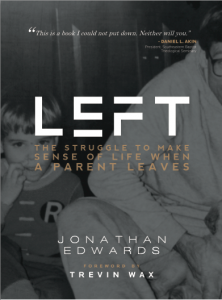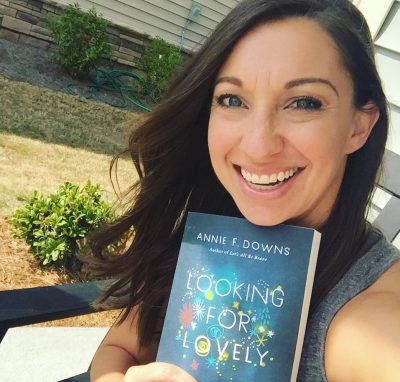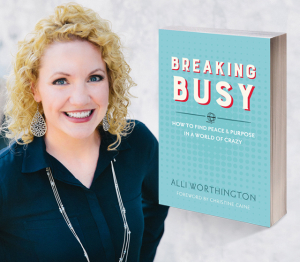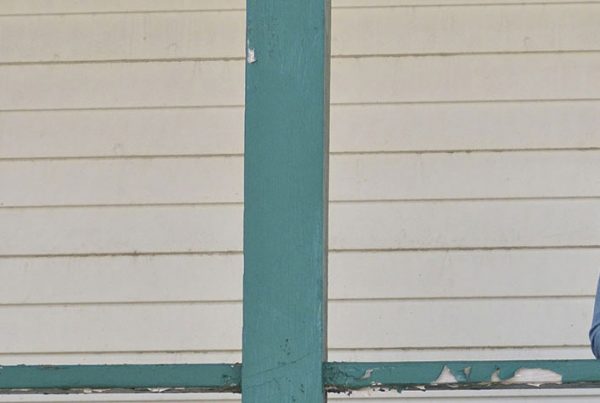Two nights ago Ike put our son to bed, walked into the living room, settled in on the couch, then turned to me and smiled.
“Do you know what Isaac just did? He hugged me, told me he loved me, and said ‘Goodnight.’ He’s never done that before.”
As he spoke, Ike’s voice began to quiver and his eyes welled up with tears. Being the sensitive wife that I am, my jaw hit the floor in shock. Ike is NOT a crier–I can count on one hand the number of times he’s cried since we’ve been married–so I was stunned. Somehow that little boy’s affection had moved my husband to tears.
Who would have guessed that it would take something so small, so ordinary, so every day?
Yet that’s what it’s like to be a parent. And I will never forget that moment, because the image of Ike sitting on the couch with wet eyes and a grin on his face–that’s what fatherhood should be.
 A few hours later I sat down to read an excerpt from a book written by an old friend. The title is Left: The Struggle to Make Sense of Life When a Parent Leaves. I’ve known the author, Jonathan Edwards, for over 10 years, and he has finally published the story of growing up without his father.
A few hours later I sat down to read an excerpt from a book written by an old friend. The title is Left: The Struggle to Make Sense of Life When a Parent Leaves. I’ve known the author, Jonathan Edwards, for over 10 years, and he has finally published the story of growing up without his father.
If you ever meet Jonathan, he is full of life. He’s the kind of guy whose energy sprays against the walls of every room he enters. He is not someone who seems weighed down by the wound of an absent dad.
But when I sat down and read the below words from his book, I encountered a different Jonathan. In fact, I felt like my heart had been ripped out of my chest. Earlier that evening I had witnessed firsthand the beauty of fatherhood. Upon reading Jonathan’s words, I was reminded that some experience a very different kind of fatherhood, one that leaves a terrible scar:
[What] makes sense is that mommy and daddy stay together, because we’re a family and to us that is what families do. We believe they stay together. We believe they help us rather than hurt us. We believe families should make us feel better, not worse. But the truth of our stories is that this isn’t the case. Our families don’t make sense to us. Our families make us confused. They make us unsure. They make us doubt. They make us lose trust.Because my father left my family.
And I will never forget it. I kept asking my mom where he was and why wasn’t he home. I wanted to know why he wasn’t eating dinner with us and why his car wasn’t in the driveway. It bothered me. It kept me up at night. I didn’t know how to process being home and living life without him there. I remember feeling so vulnerable and exposed. I remember being so uncomfortable. I had so many questions and so many concerns. It was here that I was reluctantly introduced to the empty space that would begin making its way through every aspect of my life. This vacancy, this void, was everywhere.
As I began re-imagining life and attempting to re-learn what my days, nights, holidays, meals, tee-ball games, Saturday afternoons, bed times, and home was going to look like, there was so much of this empty space. It was taking over. There was space in the living room where his big, blue leather chair used to be. There was a space at the end of the table where he used to sit and tell us jokes and talk about his day and tell me to always eat over my plate. There was a space in the driveway next to mom’s van where his light blue Honda Civic used to be parked. There was a space in his bathroom at his sink where his toothbrush and toothpaste and deodorant used to be. There was space next to mom in their bed where he used to sleep. There was space in new pictures and on the mantle at Christmas where his stocking used to hang and in the laundry basket where his dirty clothes used to be.
But his clothes weren’t there. Our laundry basket didn’t have any of his t-shirts or pants or socks. All the clothes in the basket were too small for him. We didn’t have any daddy clothes to wash.
The days and months unfolded with this ever-present, physical emptiness forced to be tolerated by a mind too young to comprehend anything inside this new way of life. I didn’t know what to say or how to act.
I just…existed.
It was a whole new world to me and this new world I was in was much different from the one Aladdin and Jasmine sang about. Normal became foreign. Everything was strange. Everyday I woke up hoping it was all a dream, hoping that I’d run downstairs and there he’d be in his blue and white bathrobe with his brown leather slippers, drinking coffee and having breakfast doing his crossword. But once I woke up he was nowhere to be found and he left me nothing to help navigate and comprehend the hell I was in. He didn’t leave me any instructions or guide to help me weather this monster of a storm that he created. I felt broken. I felt lost. I felt abandoned. There was no warning, nothing on the news to tell me where to go, or how to hide, or how to stay safe.
There was nothing to warn me that everything I knew, everything I called home and everything I called family, was going to shatter. And in the aftermath, there wasn’t a class to take. There wasn’t an instructional video to watch. It all just switched. One day he was there.
The next day he wasn’t.
Just like that he was gone.
And just like that there I was.
Left.
I hurt for answers, clinching my fist while screaming into my pillow. I cried for them. I’d lie in my bunk bed, my mind racing, aching to know what happened. It was a mystery. A giant riddle. No matter how hard I tried, nothing helped. I found myself on my knees begging for some kind of deliverance. I just wanted to understand. I wanted to understand something that I don’t think ever will make sense. I wanted to understand why families break and why parents leave. I wanted to understand why my family broke and why someone hadn’t come to fix it.
As I write this post, my son is sound asleep in the room next to me. His world is stable and secure. He trusts me and Ike so completely that he often jumps from dangerous heights simply assuming we will catch him. Our relationship with him is a source of courage and strength.
When I read Jonathan’s words, I thought of my son and his tender, trusting heart. It is in the soul of every child to look to his parents for security, an echo of the trust we were designed to have for God. It’s an enormous responsibility for parents, and sometimes, sadly, parents fail.
Sometimes, they fail shamefully.
And because of that innate, innocent trust that a child bestows upon a parent, the betrayal runs deep.
That was Jonathan’s experience. And as terrible as it was, I am grateful Jonathan has shared his story in all its rawness. It is a story of pain but it is also a story of faith in Christ, and if you have been wounded by the abandonment of your parent–especially your father–I think his story will resonate.
So I encourage you to check out this book. My hope for you is the same as it is for Jonathan, who shared these words in a recent interview:
My hope and my prayer is that it shows [the readers] they aren’t alone. My prayer is that it will lead them to some form of healing. Whether they are holding on to anger or bitterness or apathy, I hope the book would allow them to let go of those things by grabbing a hold of the Savior.
Sharon
Sharon







